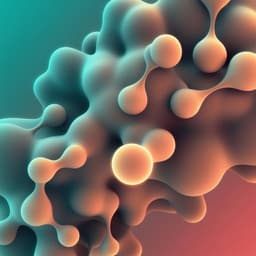
Medicine and Health
Acyl-CoA thioesterase 1 prevents cardiomyocytes from Doxorubicin-induced ferroptosis via shaping the lipid composition
Y. Liu, L. Zeng, et al.
This study explores the crucial role of Acyl-CoA thioesterase 1 (Acot1) in doxorubicin-induced cardiotoxicity, shedding light on how its regulation could protect against ferroptosis in heart cells. Conducted by Yunchang Liu and colleagues, the research points to Acot1 as a promising therapeutic target for preventing damage caused by chemotherapy.
~3 min • Beginner • English
Related Publications
Explore these studies to deepen your understanding of the subject.







